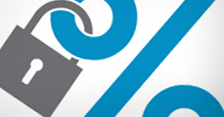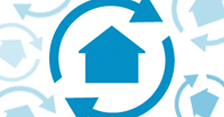OTTAWA -- The Bank of Canada has downgraded its economic forecasts for the next two years, a trimmed outlook that puts added pressure on the incoming Trudeau government and its big-ticket spending promises.
The revised projections come as fallout from persistently low commodity prices continues to hog-tie business investment and resource exports, the bank said Wednesday.
"The Canadian economy is undergoing a complex set of adjustments," the bank wrote in its latestmonetary policy report.
It now is predicting growth for 2016 of two per cent, down from 2.3 per cent. For 2017, the forecast now is 2.5 per cent, down from 2.6.
The change signals that the already-snug fiscal belt could get even tighter for the Liberal government in waiting.
Prime minister-designate Justin Trudeau pledged during the election campaign to run billions in deficits over each of the next three years. However, the Liberals vow that none of them will exceed $10 billion.
The promise, a key plank in Trudeau's platform, calls for significant investment in job-creating projects like infrastructure.
Following through on the commitment would likely have implications for the Bank of Canada.
Asked at a news conference Wednesday about the effect of boosting fiscal stimulus, bank governor Stephen Poloz declined to comment about the specific Liberal proposal.
And in general terms, he said it's still too early to determine how quickly any future investments in projects like infrastructure could produce benefits for the economy.
So far this year, Poloz has done the heavy lifting to help cushion Canada from the sharp drop in world oil prices.
The bank lowered its trend-setting interest rate twice this year to minimize the impact of a slide that saw the economy contract over the first two quarters of 2015 -- into a technical recession.
The outgoing Conservative government argued in favour of austerity rather than digging into the public piggy bank to boost the economy.
Dropping the rates, however, has had consequences: higher household consumption and debt.
The bank's report Wednesday once again warned the overall ratio of debt to disposable income has crept higher. It plans to publish a more in-depth analysis of the financial vulnerability of household debt in a December report.
"Well, that's a question we don't have a lot of experience with," Poloz replied when asked how high debt could go.
"All we have, really, is experience of other countries to give us some guidance in this. There are lots of countries with much higher ratios than those.
"That doesn't mean it's OK -- I don't mean it like that. But just to say that you can learn something from their experiences."
Looking to the future, the Bank of Canada indicated Wednesday that the economy has begun to rebound, even in the non-resources sector.
Poloz said non-resources exports would be the "backbone" of growth, particularly as the U.S. economy strengthens.
As expected, the bank also decided to leave its benchmark rate at 0.5 per cent. In explaining its decision, it noted that inflation and economic activity were largely unfolding as predicted, even as low oil prices continued to weigh on the economy.
Other items of note in the monetary policy report:
- The job vacancy rate in oil-producing provinces has fallen sharply since last fall, while it has climbed in the rest of Canada since the spring.
- The bank maintained its July forecast that the economy will grow by 1.1 per cent in 2015.
- It predicts the economy will grow by about two per cent over the final six months of the year.
None of the projections presented in Wednesday's report took into account the Liberal campaign promises.
Poloz, whose office is designed to operate independently of the government, was also asked Wednesday whether he expected a frosty relationship with the new government.
The governor, who was appointed by Prime Minister Stephen Harper, found his name tossed around during the election campaign.
In August, in the middle of the campaign, Harper took the rare step of publicizing the fact he spoke with Poloz as turmoil gripped stock and commodity markets around the world.
The Prime Minister's Office issued a news release to announce their chat even though a bank spokeswoman said the they spoke about important economic issues on a "regular basis."
Last week, Trudeau accused the Harper government engaging in a "more-active way" with the Bank of Canada to bolster its political arguments. He called it "deplorable."
Asked whether he had concerns that he had been politicized, Poloz replied that "the bank is formally, operationally independent with a very clear mandate."
"We will look forward to working with the new government just as well as we worked with the previous one."
Poloz said he had yet to speak with Trudeau since Monday's election. The bank, he added, will prepare briefing material for the incoming prime minister.












 Considering a fixed rate mortgage? Get informed!
Considering a fixed rate mortgage? Get informed! Renovating your home is within financial reach. Find out how!
Renovating your home is within financial reach. Find out how! Is your mortgage coming up for renewal? You should talk to a broker!
Is your mortgage coming up for renewal? You should talk to a broker!
 Want a mortgage? Get a mortgage! Apply now!
Want a mortgage? Get a mortgage! Apply now!

 Want to find your monthly payment or what you can afford? Find out this and more with our easy to use calculators!
Want to find your monthly payment or what you can afford? Find out this and more with our easy to use calculators!


Leave a comment